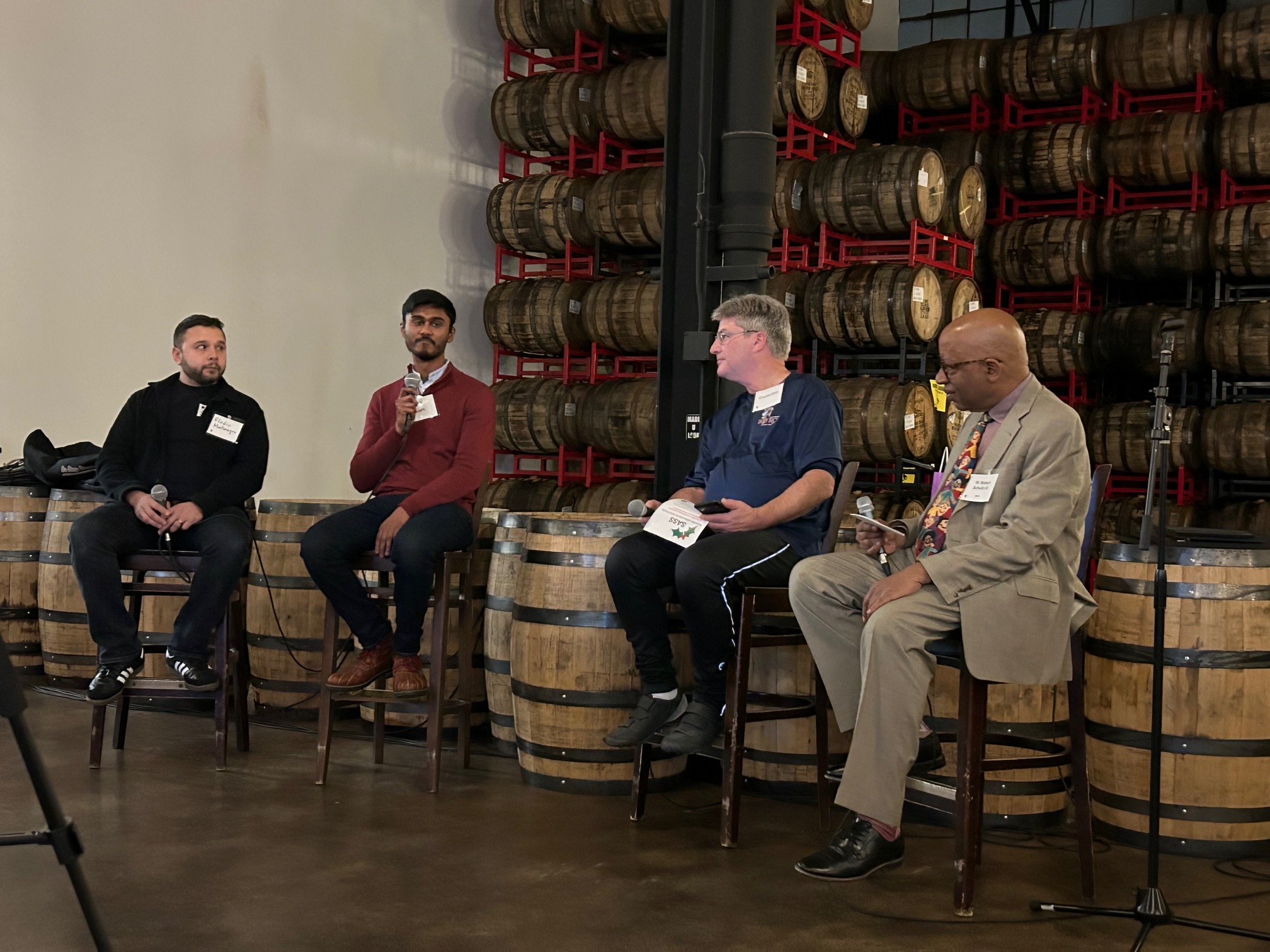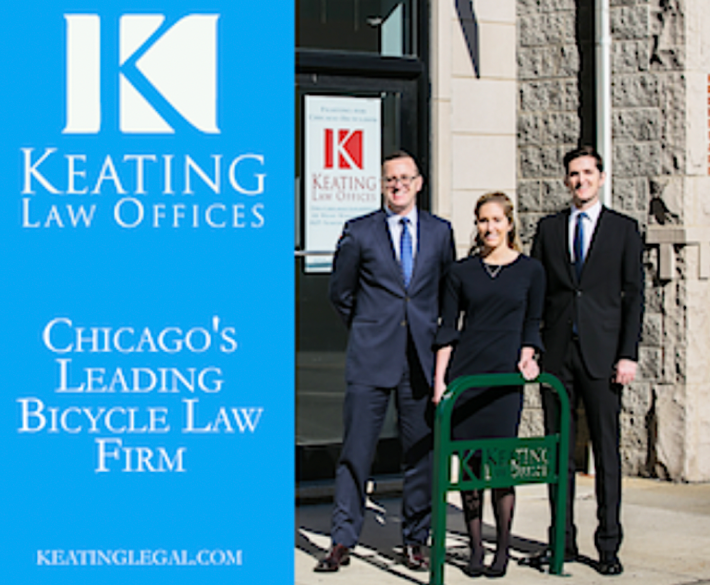
On a frigid #GivingTuesday, the Active Transportation Alliance held its annual member party to celebrate the organization’s 2024 advocacy wins, and announce priorities for the year ahead. Well over 100 members gathered in the cavernous Revolution Brewing taproom – fittingly situated along new curb-protected bike lanes on Kedzie Avenue in Avondale. Attendees mingled for the first hour, sipping beers and scarfing down pizza from Dimo’s and chicken from Nando’s Peri Peri. Full racks in the coat-and-bike room proved that cold-weather cycling is alive and well in Chicago.
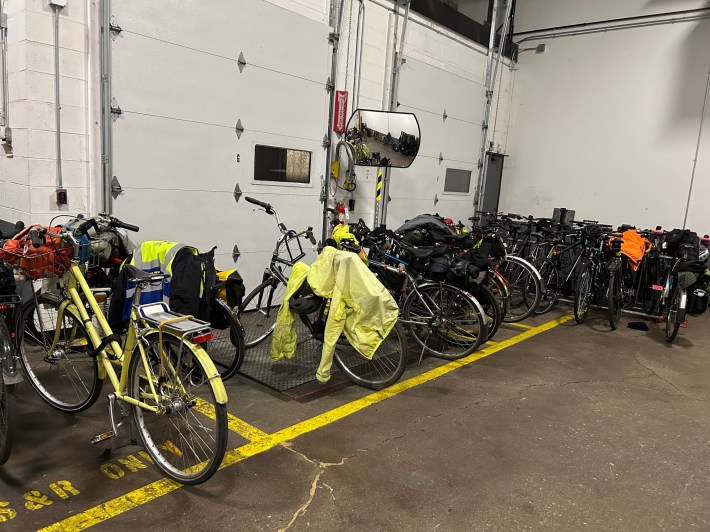
ATA executive director Amy Rynell kicked off the program, acknowledging that that directing a nonprofit "is not for the faint of heart," especially in the current political climate. The phrase came up again in Rynell’s later comments: The uncertain future of many nonprofits at the eve of the incoming federal administration – especially those positioned against the fossil fuel industry – circled beneath the surface of her remarks.
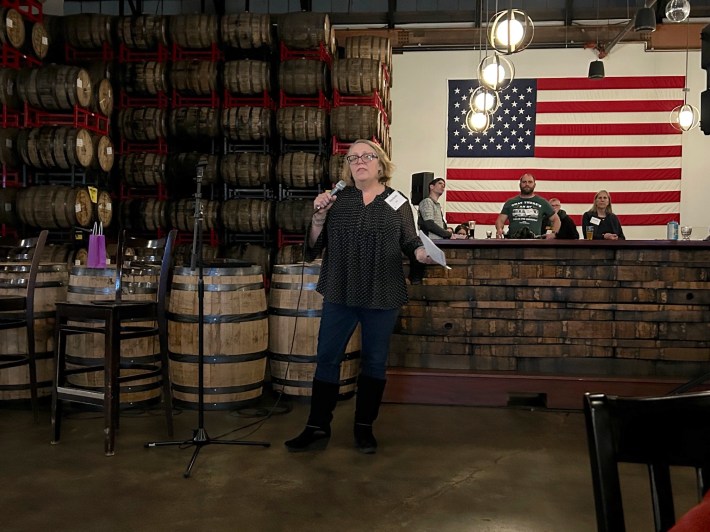
However, the program was also filled with good news. Director of Events Brittany Gillespie and Director of Marketing Clare McDermott handed out awards to volunteers, including volunteer of the year Victoria Perez-Reyes and four "Course Guardians" who, during the annual Bike the Drive event, Gillespie said, protect bicyclists and pedestrians from "inter-galactic intruders - aka cars." According to Gillespie, 300 volunteers give their time each year to safely close DuSable Lake Shore Drive to drivers and open it to thousands of people on bikes.

Board President Rubani Shaw then called the business portion of the meeting to order. Shaw introduced a slate of new and returning directors who were approved by the board for member vote. The slate was voted in swiftly and unanimously.
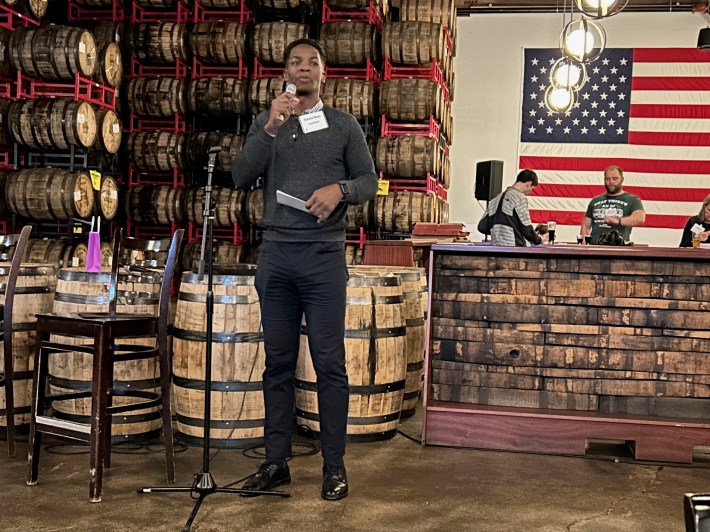
Rynell took the mic again to review highlights from the past year. Topping the list were dozens of miles of protected bike lanes and pedestrian accommodations installed by the Chicago Department of Transportation in the last two years. "We can see the new infrastructure being built across the city – for new dedicated bike lanes, dedicated bus lanes, and safer pedestrian crossings on our busiest roadways," she said. "It has been extraordinary progress that is representative of victories we were fighting for five years ago."
Rynell discussed the impact these improvements have had. She noted that Chicago has been the leading major U.S. city for growth in bicycling the last four years running, and as cycling has grown in popularity, fatalities have declined. Rynell also cited a recent poll indicating that 72 percent of Illinois residents want to see more biking, walking and transit infrastructure instead of roadway expansion.
"You all contributed to that success," Rynell said, thanking the crowd for the many ways individuals contribute to ATA's efforts, from living car-free to lobbying in the state capital. "The myriad actions you take on our behalf is the secret sauce of advocacy. Advocacy is not one thing, it’s the contribution of many of us toward these bigger visions and fighting upstream against the status quo."

Rynell named three priorities for the years ahead. First is Safe Streets for All, a multi-pronged platform backed by a coalition of advocacy groups. "Number two," she said, "We need bold action on transit, because the funding floor is about to fall out," referring to the $730M fiscal cliff facing the region’s transit system in 2026, when federal COVID-19 relief funding is expected to run dry.

"Number three," she continued, "Our entire way of policy-making around transportation is about car through-put. We need to prioritize active transportation in policy and funding. All of that [needed] to happen ten years ago as it relates to climate change."
More immediately, Rynell said her Christmas wish is for the ordinance lowering Chicago's default speed limit from 30 to 25 mph to pass the full City Council next week. This measure could dramatically decrease pedestrian fatalities. The number of people on foot killed by drivers surged during the pandemic and has remained alarmingly high since. A National Traffic Safety Board report found that if a driver strikes a person at 40 mph, they almost always die, but at 20 mph they almost always survive.
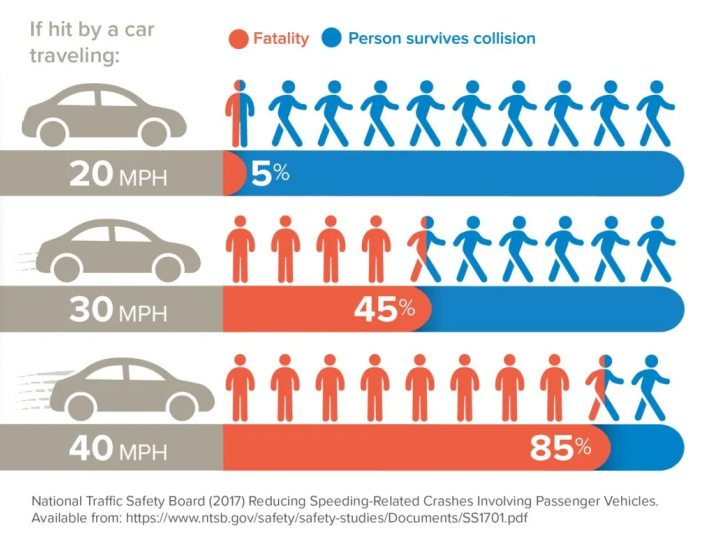
Rynell concluded with an appeal for continued advocacy, donations, and getting the word out about the need for safer streets. "Spreading the word helps us the most," she said. "Everyone is a pedestrian, but no one identifies as a pedestrian."
Campaign Organizer W. Robert Schultz, III then moderated a short panel discussion with members of other advocacy groups: Charlie Saxe of Skokie Bike Network, Rony Islam of Chicago, Bike Grid Now!, and Eladio Montenegro from the McKinley Park Development Council.
Each panelist highlighted the work of their respective organizations. Saxe talked about organizing neighbors in the north suburbs around bike infrastructure. Montenegro gave a short overview of the South Branch Connectivity Project, a community-led effort to create a connected walking and biking path along the South Branch of the river from Western Avenue to Ping Tom Park.
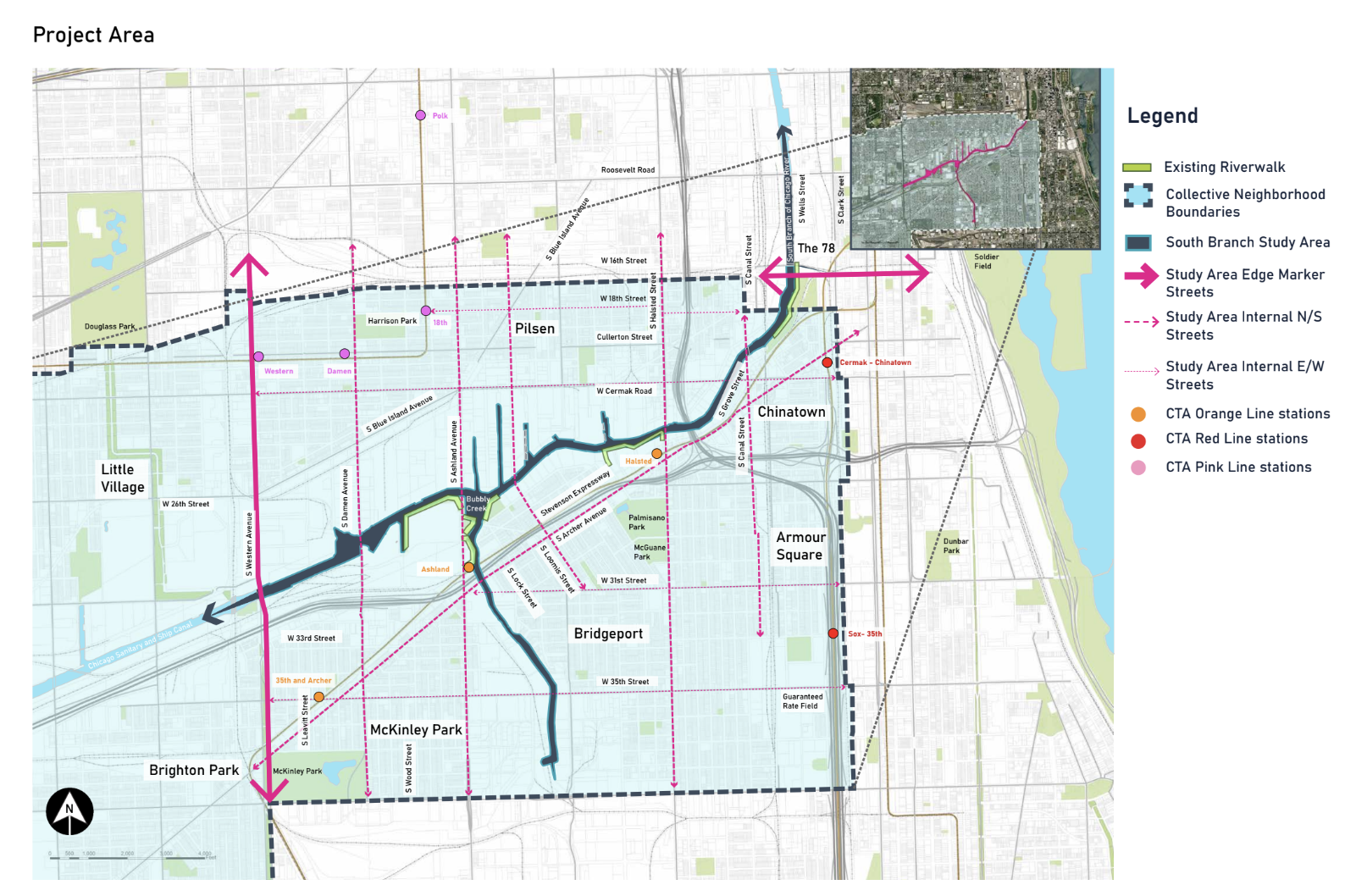
Islam talked about the CBGN! mission of creating a connected network of safe, slow streets for cycling. He also discussed the group’s participation in the campaign against the Illinois and Chicago transportation departments' proposal to rebuild North DuSable Lake Shore Drive as an eight-lane shoreline highway. Instead they propose redesigning the road as a multi-modal surface boulevard.
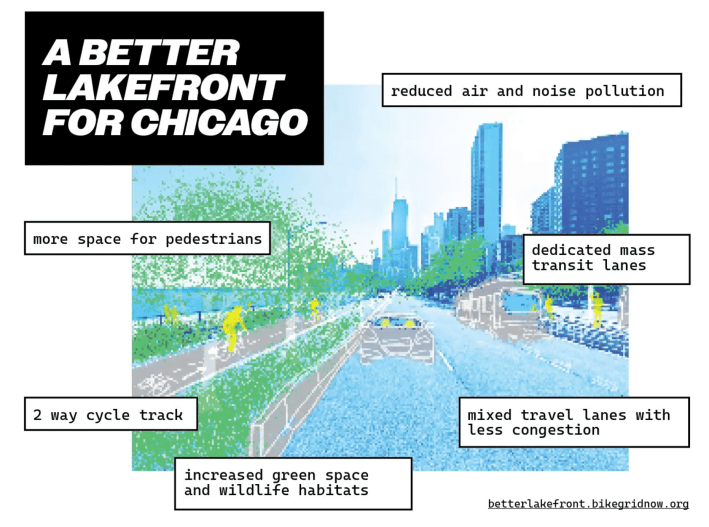
The panelists concluded by sharing advice for sustainable transportation advocates. All emphasized the importance of building community. Montenegro advised advocates to look at work done by other organizations and municipalities and borrow or build off their resources. Saxe said that it’s important to have "a good, strong narrative about what you want to achieve, what’s the path to getting there, and how people can get involved."

Did you appreciate this post? Streetsblog Chicago is currently fundraising to help cover our 2025-26 budget. If you appreciate our reporting and advocacy on local sustainable transportation issues, please consider making a tax-deductible donation here. Thank you!
